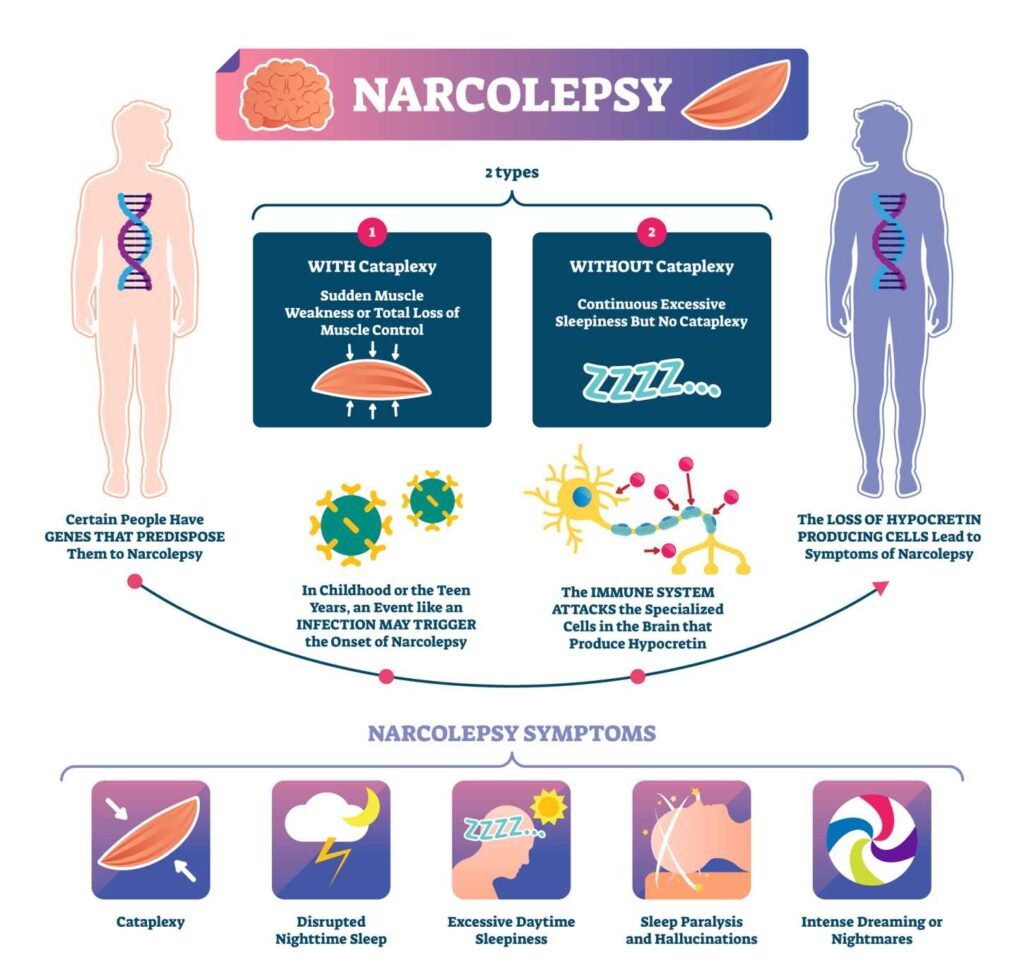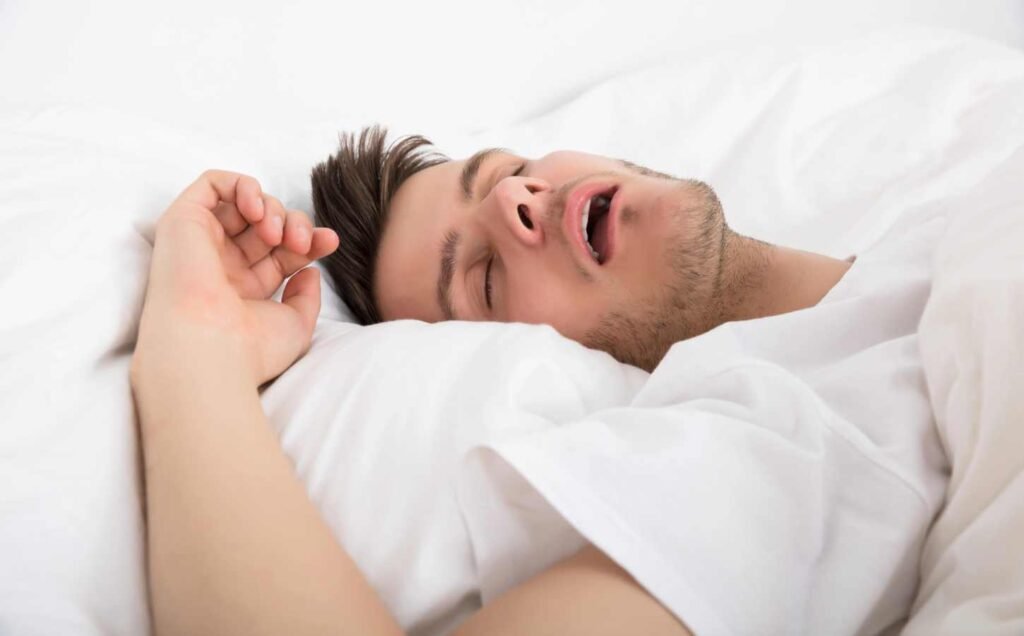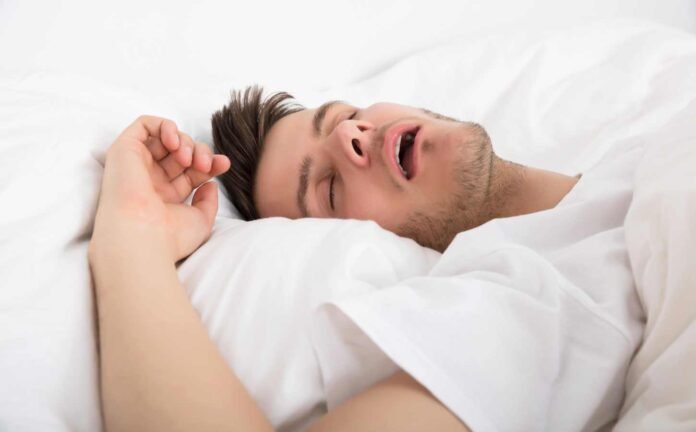Narcolepsy is a neurological disorder that affects the sleep-wake cycle of an individual.
Narcolepsy Type 2 is characterized by excessive daytime sleepiness, sudden loss of muscle tone, and hallucinations. There are two types of narcolepsy – Type 1 and Type 2. While Type 1 narcolepsy is more common and well-known, Type 2 narcolepsy is often overlooked and underdiagnosed.
Narcolepsy Type 2 is a sleep disorder that is similar to Type 1 narcolepsy in terms of excessive daytime sleepiness, but it differs in the absence of cataplexy, which is a sudden loss of muscle tone triggered by strong emotions. People with Type 2 narcolepsy may experience other symptoms such as sleep paralysis, hallucinations, and disrupted nighttime sleep. However, these symptoms may not be as severe as those experienced by people with Type 1 narcolepsy.
Diagnosing narcolepsy Type 2 can be challenging as the symptoms are often non-specific and may overlap with other sleep disorders. A thorough medical history, physical examination, and sleep studies are necessary to confirm the diagnosis. Treatment options for narcolepsy Type 2 include lifestyle modifications, medication, and behavioral therapy. It is important to seek medical attention if you suspect you may have narcolepsy Type 2 to improve your quality of life and prevent any potential complications.

Understanding Narcolepsy Type 2
Defining Characteristics
Narcolepsy Type 2 is a chronic neurological disorder that affects the brain’s ability to regulate sleep-wake cycles. It is characterized by excessive daytime sleepiness (EDS), which is a persistent feeling of tiredness during the day, even after getting enough sleep at night. Individuals with Narcolepsy Type 2 may also experience sudden bouts of sleep, known as sleep attacks, and have difficulty staying awake for extended periods.
Differences From Type 1 Narcolepsy
Narcolepsy Type 2 is similar to Narcolepsy Type 1 in terms of excessive daytime sleepiness, but it differs in the presence of cataplexy. Cataplexy is a sudden loss of muscle tone triggered by strong emotions, such as laughter or anger. Individuals with Narcolepsy Type 1 experience cataplexy, whereas those with Narcolepsy Type 2 do not.
Risk Factors and Genetics
The exact cause of Narcolepsy Type 2 is not known, but research suggests that genetics and environmental factors may play a role. Individuals with a family history of Narcolepsy Type 2 are at a higher risk of developing the disorder. Additionally, certain genetic markers, such as DQB1*0602, have been associated with an increased risk of Narcolepsy Type 2.
In conclusion, Narcolepsy Type 2 is a chronic neurological disorder that affects the brain’s ability to regulate sleep-wake cycles. It is characterized by excessive daytime sleepiness, sleep attacks, and difficulty staying awake. Narcolepsy Type 2 differs from Narcolepsy Type 1 in the absence of cataplexy. Genetic factors, such as family history and specific genetic markers, may contribute to the development of Narcolepsy Type 2.
Diagnosis and Management
Diagnostic Procedures
Diagnosing narcolepsy type 2 involves a combination of medical history, physical exam, and sleep studies. The two primary sleep studies used to diagnose narcolepsy type 2 are the multiple sleep latency test (MSLT) and the polysomnogram (PSG). The MSLT measures the time it takes for a person to fall asleep during the day, while the PSG measures brain activity, eye movements, and muscle activity during sleep. A person must have a mean sleep latency of less than 8 minutes and two or more sleep-onset REM periods (SOREMPs) on the MSLT to be diagnosed with narcolepsy type 2.
Treatment Strategies
The treatment of narcolepsy type 2 involves a combination of medications and lifestyle changes. Stimulants such as modafinil and armodafinil are commonly used to improve daytime alertness. Scheduled naps throughout the day can also help manage symptoms. Lifestyle changes such as maintaining a regular sleep schedule, exercising regularly, and avoiding alcohol and caffeine can also improve symptoms.
Living with Narcolepsy Type 2
Living with narcolepsy type 2 can be challenging, but with a combination of treatments and lifestyle changes, symptoms can be managed effectively. It is important for individuals with narcolepsy type 2 to maintain a regular sleep schedule and avoid sleep deprivation. Exercise and healthy eating habits can also improve symptoms. Emotional support from family and friends can also be beneficial.
Narcolepsy Type 1: Symptoms, Causes, and Treatment

Narcolepsy type 1 is a chronic neurological disorder that affects the brain’s ability to regulate sleep-wake cycles. This disorder is characterized by excessive daytime sleepiness, cataplexy, sleep paralysis, and hypnagogic hallucinations.
Continue reading about Narcolepsy Type 1
MaryRuth Organics Sleep Gummies Without Melatonin Review: Do They Work?

These gummies are designed to promote relaxation and support sleep quality for adults. Unlike many other sleep aids, they don’t contain melatonin, so you won’t wake up feeling groggy or drowsy.
Continue reading: MaryRuth Organics Sleep Gummies Without Melatonin




